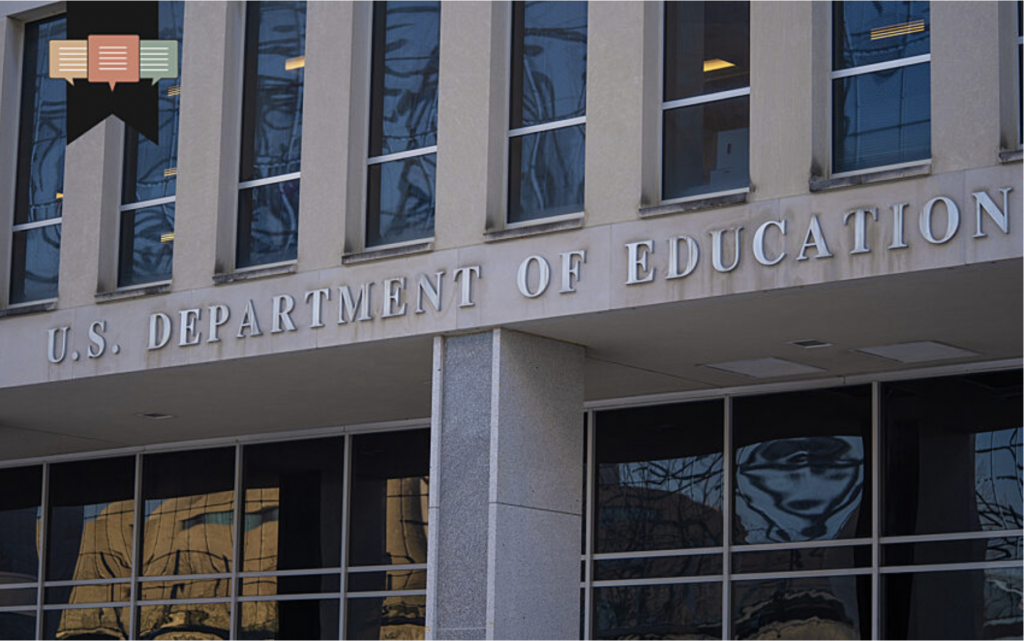
Published May 17, 2023
In mid-April, the U.S. Education Department proposed a regulation that would make it nearly impossible for public schools to maintain a school-wide policy for single-sex sport participation based on an athlete’s biological sex. The draft rule is another example of controversial, culture-shifting federal policy made not by elected representatives but by bureaucratic officials.
Administrative actions from the departments that make up the executive branch of the federal government may often be technical, but their social impact can be broad. That’s especially concerning when the departments implementing laws extend their rule-making power beyond the congressional intent in writing those laws.
Consider the source of two conflicts that made headlines over the last decade.
When a group of nuns known as the Little Sisters of the Poor had to go all the way to the U.S. Supreme Court in 2016 to avoid being forced against their convictions to offer contraception in their health plan, a federal regulation was the source of the problem. The conflict was created by a 2011 rule issued by the U.S. Department of Health and Human Services (HHS) under Obamacare. As a part of the implementation of that law, HHS created a new policy that required nearly all employer health insurance plans to cover contraceptive drugs and devices, including those that can induce abortion. That requirement was put in place by regulators, not legislators.
Congress had included no such provision in Obamacare. The mandate was simply a bureaucratic addition. The HHS mandate created a conscience conflict not only for the nuns but for dozens of other faith-based organizations for whom offering abortion-inducing drugs represented a violation of conscience. These groups also had to appeal to courts to vindicate their religious freedom. Yet, even now, HHS rule-making on this provision continues to cause problems for pro-life groups.
In another example, the U.S. Department of Education and U.S. Department of Justice issued guidance in May 2016 advising public school systems across the country that the Obama administration would interpret the word “sex” to include gender identity under Title IX. Enacted by Congress in 1972, Title IX prohibits discrimination on the basis of sex in schools and colleges receiving federal funds. Adding gender identity clearly stretched the purpose of the law beyond what Congress authorized.
Moreover, the federal guidance explained that local school bathroom policies would need to change as a result of the reinterpretation, and it spelled out specifics. No longer would schools be allowed to limit bathroom access on the basis of biological sex. Nor would schools be permitted to designate single-occupant facilities for transgender students’ use. In other words, officials in Washington took a solution off the table that local schools might have used to resolve conflicts around the issue.
Off and on since 2016, legal challenges have stalled implementation of the federal directive concerning bathroom policy. Change of presidential administration has also reversed course in the matter—not once, but twice. In 2017, the Trump administration rescinded the guidance issued by Obama officials. Then in 2021 the Biden administration gave notice that it would reinstate the Obama-era interpretation of sex to include gender identity. Since then, federal agencies have engaged in new rule-making under Title IX to make the reinterpretation officially enforceable.
That brief history is a reminder of the saying that personnel is policy. Presidents appoint personnel to 4,000 political positions across the executive branch and in independent agencies. Presidential elections are about more than who sits in the Oval Office. Elections also have implications for staffing the federal departments where administrative actions originate.
Policy is also public, meaning that citizens can and should stay alert about developments in the administrative arena. Federal agencies are required by law to announce proposed new rules, invite public comment, and address the comments they receive in their rule-making process. Christians concerned about policy changes regarding gender identity or religious freedom, for example, can track developments and express their views on proposed administrative rules that touch these topics.
Congress and the federal courts have a role to play as well, checking overextended administrative action in order to maintain balance among the three branches of our federal government. Whether through separation of powers or scrutiny of citizens, accountability is key to keeping administrative authority in its lane. That’s particularly true when regulatory power veers into revising fundamental principles that form the bedrock of our civil society.
Jennifer Patterson is director of the Institute of Theology and Public Life at Reformed Theological Seminary (Washington, D.C.) and a senior fellow with the Ethics and Public Policy Center.
Jennifer Patterson is a senior fellow at the Ethics and Public Policy Center. Her work focuses on projects related to religious freedom and overcoming poverty, drawing on her more than 25 years of experience in public policy.








